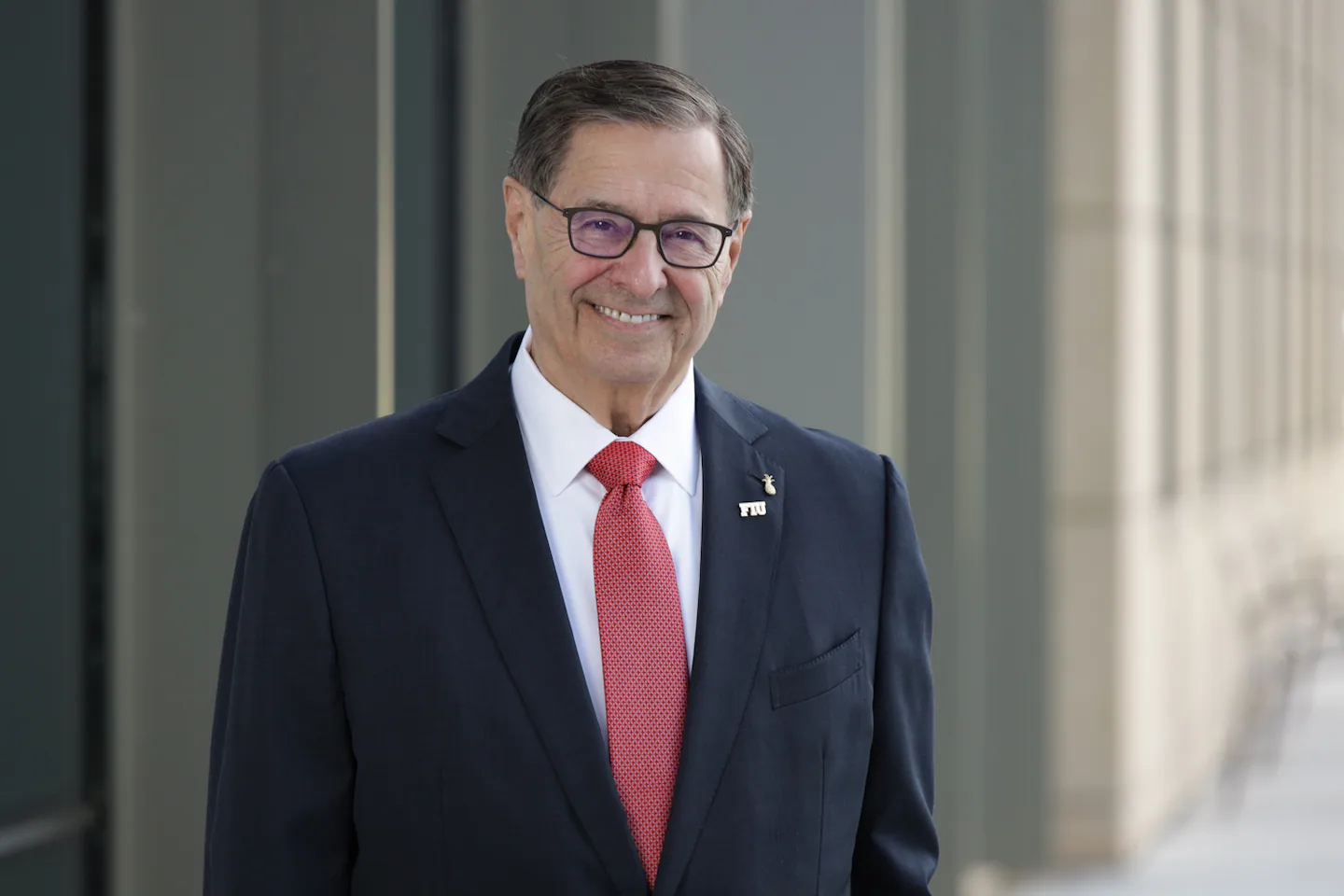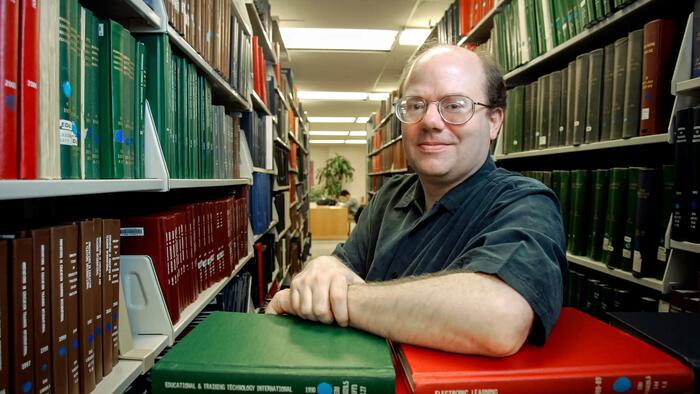Copyright The Boston Globe

“He has been a father figure to me throughout my career,” said Dr. Atul Gawande, the bestselling author of “Being Mortal” who is on the Brigham’s surgery faculty. “He gave people an opportunity to take risks — over and over and over again — and that has made us all incredibly loyal to him. His legacy has really spread across the country and the world through the field of surgery and even beyond.” Dr. Zinner, who left Boston about a decade ago to become the founding chief executive and executive medical director of Miami Cancer Institute and Baptist Health South Florida, was 80 when he died in his Coral Gables, Fla., home Saturday of pancreatic cancer, 14 months after diagnosing himself with the illness. His engagement with pancreatic cancer had already crossed boundary after boundary before the illness ended his life. Along with having been a renowned pancreatic cancer surgeon, a researcher in the field, and a cancer center executive, he had remained by the side of his wife, Ronny, through her illness and death in 2014 from pancreatic cancer. As he faced the same diagnosis, “separating being the patient, and also the physician knowledgeable about a lot of the details, has sort of been a back and forth the last 10 months,” he said in June. By then he was long familiar with the give and take of numerous medical relationships — between physician and patient, teacher and student, administrator and hospital. An innovative leader, he arrived at a top position in Boston’s internationally respected medical community in 1994 without following the traditional route of rising through Harvard Medical School’s teaching hospitals. Some health care leaders he encountered early in his Boston years made less than subtle comments about him having a medical degree from the University of Florida. “This was an outsider who came to Harvard and had an enormous impact, but who came as someone who wasn’t necessarily anointed to have that,” said Gawande, who was assistant administrator for global health at the U.S. Agency for International Development in the Biden administration. As chairman of surgery at Brigham and Women’s Hospital, Dr. Zinner “built an incredibly powerful and important relationship with the Dana-Farber that played a major role in the development of the Dana-Farber Brigham Cancer Center,” Gawande added. Dr. Zinner also turned Brigham and Women’s into a national leader in medical training through the hospital’s pioneering role in significantly reducing the traditional, 100-plus hour workweeks for residents. “He was an early leader in changing the surgery residency in ways that enabled women to have families during surgical training and build very, very successful careers,” Gawande said, “and that made us quickly the top draw for talent across the board.” Dr. Zinner, the Moseley professor of surgery, emeritus, at Harvard Medical School, also was instrumental in founding the Center for Surgery and Public Health, a 2005 joint venture of Brigham and Women’s, Harvard Medical School, and the Harvard T.H. Chan School of Public Health. The center has made “surgery safer, more patient-centric, and more accessible in the US and around the world,” he wrote in a biographical essay, and “is now recognized as a global leader in this field.” Michael Jeffrey Zinner was born in Miami Beach on April 2, 1945, and grew up in the suburb of Coral Gables. His father, Doran Zinner, was a dentist. His mother, Eve Wernikoff Zinner, did hospital volunteer work. As a youth, “I was a quintessential geek,” Dr. Zinner recalled in June. Using pinball machine parts, he built a computer that placed first a South Florida science fair, and he won a semifinal competition in the Westinghouse Science Talent Search. His first two years at Johns Hopkins University in Baltimore didn’t go well academically, though. “I began to do everything wrong,” he wrote, and he spent his junior year back home at the University of Miami. Then he returned to finish a bachelor’s degree at Johns Hopkins in electrical and electronics engineering before getting his medical degree from the University of Florida. Years later at Brigham and Women’s, he sought residents from diverse educational backgrounds like his own and encouraged some he mentored to attend graduate programs in business or education. “He fostered people who have changed how surgical education is done,” Gawande said. After receiving his medical degree in 1971, Dr. Zinner finished his training at Johns Hopkins Hospital. Before going to Brigham and Women’s, he had served as an Army Medical Corps major at Walter Reed Army Medical Center in Maryland, as vice chairman of surgery at the Johns Hopkins Hospital and the university’s medical school, and as executive chairman of the department of surgery at UCLA Health in California. His first marriage, to Ellen Scheiner, ended in divorce. They had two sons — Darren, who now lives in Boston, and Dan, who lives in London. The family’s summer home in Marion became a place for bonding. “A good day for the Zinner men was fishing and barbecuing and wine,” Darren recalled. While there, Dr. Zinner would unwind — to a point. He expected men to wear shirts with collars to dinners that featured wide-ranging discussions. During the day “we could do anything we wanted,” Dan said, but each evening it was “the three S’s, he used to say: shirt, shaved, and showered.” Dr. Zinner’s second marriage, to Karen Sui Zinner, also ended in divorce. In 1997, he married Rhoda Shapiro. “The things that attracted me to Ronny were the kindness, the gentleness, the humanity, her sense of social justice,” he told the Globe when she died in 2014. The two blended their families “so seamlessly,” said Jennifer Herman of Wellesley, Ronny’s daughter from her previous marriage. She said Dr. Zinner “always called me his daughter” and was in the hospital when her children were born. “He was grandpa to my kids. He was enormously loved. They adored him,” she said. “In everything he did with them there was a lesson learned. Even when he didn’t mean to, he always imparted some sort of knowledge.” In addition to Darren, Dan, and Jennifer, Dr. Zinner leaves a stepson, Jonathan Segal of Los Angeles; a sister, Karen Zinner of Salt Lake City; and five grandchildren. A funeral service will be held at 11 a.m. Thursday in Temple Beth Am in Pinecrest, Fla., followed by burial in Mount Nebo Memorial Gardens cemetery in Miami.. Plans will be made for a remembrance of Dr. Zinner in Boston. Dr. Zinner, who held leadership positions with the American College of Surgeons and numerous other organizations, was known for the care he took during operations. “He was elegant and meticulous in not wanting to lose one drop of blood unnecessarily,” recalled Gawande, whom Dr. Zinner regarded as a bright star among the many accomplished surgeons he trained. Speaking in June, Dr. Zinner said that in looking back on his work, “the thing that I’m most proud of, and I have said this publicly and privately, are the young people that I have mentored, and that now accounts for well over 200. I am most proud of them carrying on and giving forward the way that I’ve had a chance to do in my career.”



